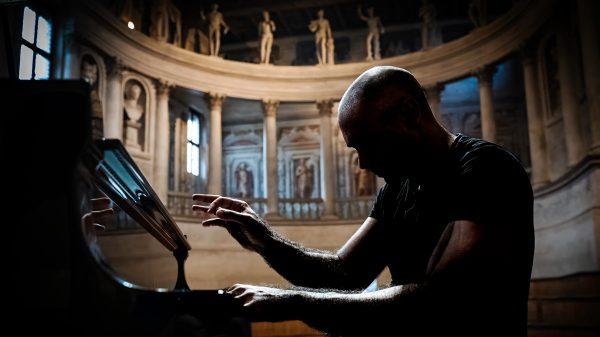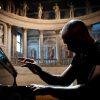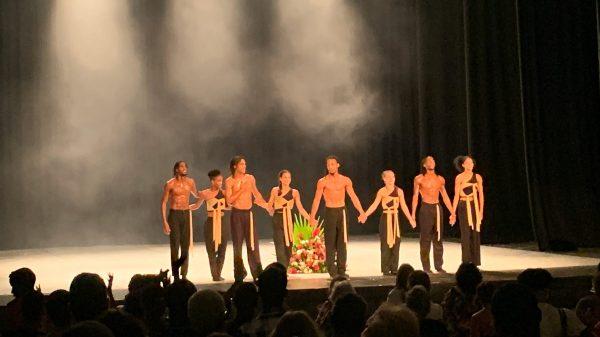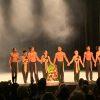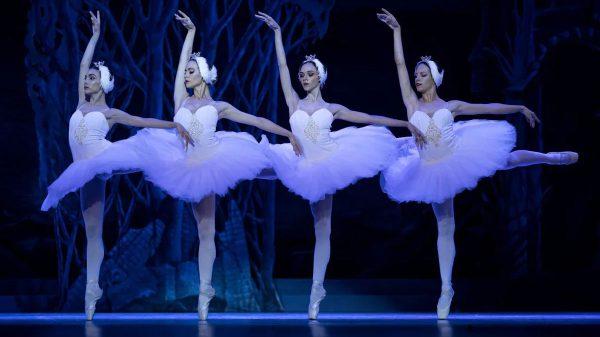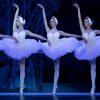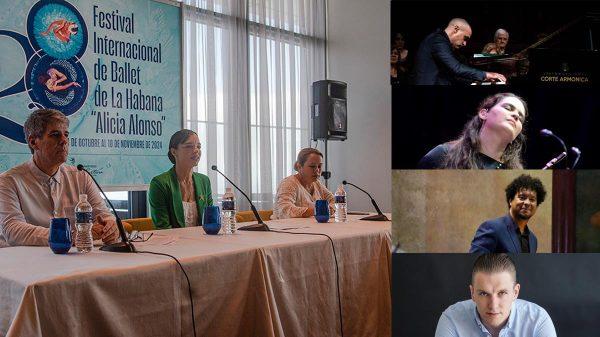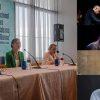The last time I talked to Marcos Madrigal, Cuban classical pianist, and Director of the Habana Clásica Festival, he was on a train to Lugano, “città del mio cuore” (city of my heart) to make a new recording of Ildebrando Pizzetti’s works for voice and piano.
Born in Havana and studying piano from the age of three, he graduated in 2007 from the University of Arts of Cuba (ISA). Marcos Madrigal received further education in Switzerland at the Conservatory of Southern Switzerland in Lugano, and the International Piano Academy Lake Como, where he studied with Dimitri Bashkirov, Malcolm Bilson, John Perry, Andreas Staier, and Fou Ts’ong. The American classical pianist, William Grant Naboré, mentored Madrigal while he was studying in Switzerland.
Approximately 18 to 20 years ago, he moved to Rome, a world-class center for art, architecture, culture, and music.
Throughout his career, he has performed at some of the greatest concert halls in the world. This year, he has performed and/or recorded in Paris, Spain, Italy, and Bogota. He is also the recipient of many international awards of the classical music world from Spain, Rome, Cuba, Costa Rica, and Panama.
Madrigal is at the height of his career, another stellar example of a Cuban contribution to the international world of music and culture.
T.K. Hernández: Good morning, Marcos. Thank you for the chance to speak with you. I am honored. I want to ask you one quick question to begin. In three words or less, describe your life as it is now.
Marcos:
I will try to do my best, but I don’t know if I can say all I want with my English. The first word is contemplation. Maybe because I feel like I’m living this year in the third person because I’m becoming older. And then it’s very interesting because all my artistic process now, it is like in a distance. I would say this new chapter of my life is very interesting and beautiful. Maybe it’s something very important now for me in my artistic process. Then after a while, I feel I have not enough time to do all I need to do and all I want to realize. I’m happy because, in a way, it’s like the union of everything. I’m so happy because a lot of the things that I dreamed have become true, and the happiness that surrounds me. This type of happiness is like seeing what is going on around the artistic process, the projects, and my life.
So, life is beautiful.
Marcos:
Yes, very.
When I asked you that question. I thought you would say life is beautiful. Because what I see as an outsider of your life, you live a very beautiful life.
Marcos:
Yes, I feel very lucky not only with my career, the things that I’m realizing, but I also found a lot of beautiful people on my path. That is very important because I always live far from my city, my place, my family. At the same time, I always feel a lot of affection. It’s very interesting and good, people who feel, in a way, my emotional life. I think this is the main reason I feel these things at this moment.
I cannot say what I want because normally when I speak Italian or Spanish, I always like a very deep conversation. I don’t have the vocabulary to say what I’m thinking in English, but I think you can feel what it is.
Your home is permanently in Rome now?
Marcos:
Yes. I live in an apartment within a park in Rome surrounded by very beautiful greenery. The Roman aqueducts are nearby.
Do you plan to return to Havana to live?
Marcos:
Yes, of course. I think at one point I will return to finish my life there, if it’s possible. But not now, because I’m in the middle of my career and a classical pianist needs to be in Europe in the middle of our careers. I go often to Havana about three or four times a year. I have a lot of projects there. It is still home. When I’m not there, my base is in Rome.
How long have you been living in Rome?
Marcos:
Maybe 18, 20 years.
That’s lovely that you have the option to be in Havana and also Europe. Let’s discuss your new release which came out on June 25 on the French label, Artalinna? What inspired you to record Prokofiev, Vol. 1: Visions fugitives, Piano Sonatas Nos. 5 and 7?
Marcos:
Prokofiev and the Russian repertoire were always present in my life. When I was studying, I always played a lot of Prokofiev. He’s one of the top, top composers. It was a very nice surprise when Artalinna, the French label from Paris, proposed to do the first Prokofiev album. Because I’m Cuban and a classical pianist, a lot of Russian pianists of my generation are very good. It was a beautiful surprise that they chose me to do this project.
The most beautiful thing was when we finished the project some months ago, they were in love with the result. They then proposed to me to do a huge release of Prokofiev. For this reason, this album comes out as Prokofiev Vol. One. It will be the first album. The idea is to make a series of Prokofiev, maybe 10 or 15 years, to record all the piano music of Prokofiev. It is great because it’s like a dream that one of the top European companies believes in you and trusts you for a project like this. For classical pianists, it is huge. Prokofiev is one of our gods in classical music. I always dreamed to do this. Now I have this beautiful project and am trying to prepare all the Prokofiev music. They have the same vision as I of this music.
You’ve been very busy this year traveling frequently. Would you share some highlights of your performances this year?
Marcos:
Yes, at the beginning of the year, I was still locked down here in my house because of the coronavirus. Everything started slowly. I was very lucky because I was one of the few pianists who was touring again and playing with orchestras. I performed in Denmark. I played in the north of Spain. I was in Bogota for several concerts. When I came back to Italy, I played here. Now I am in Rome. I will work here this week here. I hope everything can continue in this way because now the situation here looks better, but we really don’t know how long we will remain like this. Finally, there is light at the end of the tunnel.
You worked recently worked with another Cuban virtuoso composer, Yalil Guerra. Can you tell us about that experience?
Marcos:
Yes, that was great. It’s something that I wanted to realize some years ago. But I was always very busy playing and touring. It was impossible to stop and be part of it. Music needs sometimes a lot of energy. I said, OK, this is the moment I was ready because we can put it all together at the beginning. I will be in Los Angeles. Then I found an amazing team here in Rome, and we worked half here and half in L.A. It was very interesting because I worked with him every night.
When you work with the composer of the music, it’s a completely different experience. He’s a brilliant composer and musician. It was very hard but, I must say, I enjoyed all the pieces we recorded. We are very happy about the result because it’s the first recording of the Sonata. It’s a huge work. I think it’s very important for the piano repertoire, not only for the Cuban or Latin American but for all the piano repertoire in the world. I hope pianists discover this piece after this album and we do the piece in the global repertoire because I think Yalil has an incredible career. But the music is something very special and needs to have the same place in our piano world. I’m very happy. We had a lot of room with this album. This was out some months ago and we are still working on the promotion. I hope I can play the music live, soon.
You are the Artistic Director of the Habana Clásica Festival, which last opened in 2019. Are there plans to run another Festival in the future?
Marcos:
Yes, of course. The idea was to make a new edition this year. But we cannot confirm because the world is still like it is. We have confidence. In November, I hope, even if we don’t do a whole edition like always, I hope to be there and at least do something with some of the artists of the festival. We will see. I still have hope. I have the dream that we can do at least something easier there. I think that the public needs to, in a way, come back to that reality. But I cannot say it will be. I hope we may be there in the middle of November in Havana.
It’s difficult to get a flight to Havana right now.
Marcos:
Yes, I know, but it’s the same from here. It’s like I have the home, I have everything and we are waiting for the ongoing vaccination process there and maybe things will change. But the situation now in Havana is difficult with the Covid.
Who or what is the greatest inspiration for your life’s work?
Marcos:
I’m an interpreter. I am not creating the pieces I play, but I’m the vessel. The music needs the interpreters to come alive. The thing is, doing my work, these pieces are so incredible. I am always in front of these deep and huge works. I have to find the right words. All this living in front of me every day that at the end, I think these works of art are always my greatest inspirations because I need every day to return to them with humbleness and respect because they are truly art. They are incredible. I am in front of an evocative piece of Bach or Chopin, or Mozart. It’s like the most important music in human history. Every day I am trying to go deeper in my process with these incredible things and the way you can feel the deepest humanity and divinity, all the feelings and all the geniality of the human being inside of that music. Then for me, I think I’m very lucky because every hour of my working day with this fountain of inspiration; I encounter greatness every day. I’m an interpreter, I’m not a creator, I’m always in touch with this incredible source of inspiration, and that source of inspiration, inside the music, I play every day normally are the greatest works of art in music. Those pieces are my main sources of inspiration.
I have found that frequently in articles about your work it describes a piece performed by you as the “Cuban interpretation”. What is this “Cuban interpretation” of a classical work by a Western European or Russian composer?
Marcos:
I think it can be a very complex thing. But when we go through the music I’m playing, my reality, my personality, my history, my life is in there. I’m Cuban. I was born there. It’s like a Cuban speaking through the music of the classical repertoire.
I think you know, the Cuban culture and not only Cuban culture but also Latin American culture, we don’t have a problem to say what we feel. It’s something like that. We sometimes say maybe even more than what we create in our culture. It’s a way to see. Maybe when I’m playing, I put out all the feelings, maybe without a lot of filters, maybe that’s where they can feel this Latin flavor.
I’m Cuban, it’s true. But I studied all over in Europe. I have all this European training and I’m very European. It’s like appearance is, of course, something I understand very well. The feeling is Latino in me, but I’m very serious when I’m playing Beethoven or I’m trying to be on the style, the type of sound, everything. Sometimes I feel they say “Cuban interpretation” because it’s exotic because I’m one of the few Cuban classical pianists.
One thing is true. Playing Latin American music, everything changes because the way we have, the way we feel, the rhythm is completely different. We have a lot of Latin American repertoire. Then, in that way, yes, because when I play Latin American music, I change completely, how I interpret the rhythm of the pieces, not only the rhythm, the Cuban rhythms, how you play the rhythms part. Because in our music, classical music, the composers are always looking for inspiration in the folk music, on the ground, in popular music. Then it’s very important to understand that type of music in our culture to play classical Latin American music. But this is another type of music. It’s classical music, but from our continent, even North America, music is something the same because we have the Jazz and Afro-American influence. Or you can say, inspiration in classical music.
I hope to see you perform one day.
Marcos:
I hope too, yeah. Maybe, when everything passes, you can go to Havana to the Festival because it’s very interesting what happens there. We try to make a bridge between European classical music and the Havana cultural scene. It’s very interesting, not only musically, even the social part, the humor, I find very interesting. You get to know our culture very well.
I understand that we have some problems with the United States with an embargo on top of everything else. That’s why I’m doing more things here in Europe. I understand how difficult some things can be with the embargo. I didn’t think about that. You know, sometimes I have problems. For example, sending money for a ticket from Italy to Switzerland-just because I put Habana Clásica in the name.
This brings our conversation to a close. Thank you so much for your time. I’m very grateful to speak with you, a maestro of the classical music world, a brilliant pianist of our times.
Marcos:
My pleasure. Thank you very much for your support of everything. I hope to meet you too.
Follow Marcos Madrigal on his Twitter, Facebook, Instagram and YouTube channels for his latest performances, recordings and news.
Recent Works by Marcos Madrigal:
 |  |
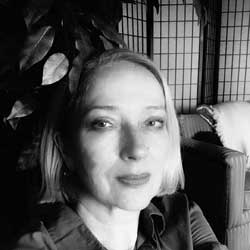
T.K. Hernández is co-founder and editor at Cuba Business Report. Her work has been published in various online news media publications. Hernández has supported fundraising for Cuba’s last two hurricane disaster relief campaigns and is a member of the Canadian Network on Cuba. She is also a member of The Writers Union of Canada, and ACES International Alliance of Editors. Ms. Hernández is the author of three books, most recently, “The Cuba Interviews: Conversations on Foreign Investment and Economic Development,” (Palgrave Macmillan, 2023).







